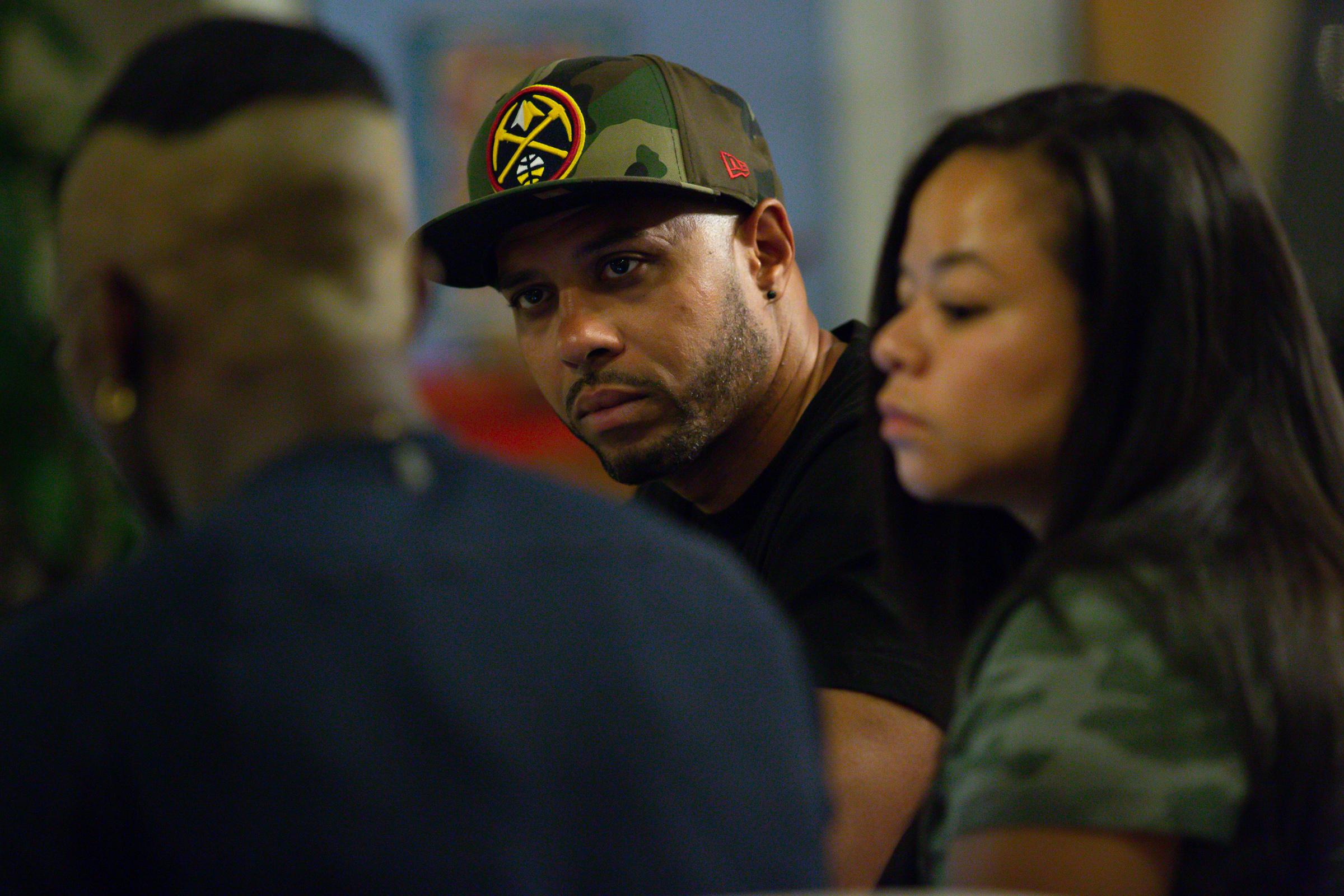On Thursday, Civil rights activist Terrance Roberts told Denverite he plans to run for mayor.
"I'm ready for radical change in the city," he said. "And I'm willing to put myself out there."
Roberts comes from a family with deep ties in Park Hill, including his late father, pastor George Roberts. Growing up in the '90s, Terrance Roberts was a Blood gang leader in Park Hill. He served time in prison and cut ties with the gang.
Afterwards, he earned a reputation as an anti-gang activist. That was sullied in 2013, after he shot a man at a community rally in Holly Square -- the subject of Julian Rubinstein's recent book The Holly. Roberts faced attempted-murder charges, but the court found he acted in self-defense.
In recent years, he's rebuilt his reputation as a community leader, arguing against racist police violence in the wake of the killings of Elijah McClain and George Floyd. He once again faced prison time -- and multiple felonies -- after being arrested during protests in the summer of 2020. All charges were dropped.

While he has no plans to stop demonstrating anytime soon, he decided a run for office was in order.
"So me and my team said instead of trying to protest and get things done, we might as well do what we can and try to see if we can get into office and make the necessary changes that we think that we need to do," he said.
Among his defining issues are addressing the city's housing crisis, homelessness, youth violence, and the development of the music and film industry.
Roberts opposed Denver's urban camping ban and plans to run on a housing-first model, in which people can have access to sanctioned campsites with restrooms, showers and waste facilities for trash, with more permanent housing later.
"We need adequate spaces where people can camp, that have washers and dryers, that have adequate electricity, so people don't have to use dangerous propane tanks," he said. Camps "should have trash receptacles instead of letting our unhoused neighbors be eaten by rats."
He supports developers building more attainable housing but also wants to create more publicly funded and operated housing options. For renters, he plans to explore imposing some form of rent control, so landlords cannot endlessly raise rates without restraint -- a longstanding challenge for politicians who have faced state rules prohibiting local rent control.
Roberts has been a longtime critic of how Denver law enforcement has used gang members as informants, arguing doing so has corrupted the police department.
"We do need to have a proper conversation about proper policing, not using active gang members or dangerous informants for police to get information," he said. "We know that there's going to be informants who need to be used to break up crime rings and solve cases. I'm not saying that you can't use them at all. But an active gang member has no business getting paid with taxpayer dollars to act like he's stopping the gang problem."
Roberts hopes to change closing time at clubs to 5 a.m., in an effort to disperse how many people are let out onto the street when bars close. He hopes the policy would reduce after-hours violence and increase business.
His administration would weaken mayoral powers and give City Council and voters more say. Part of that is limiting the mayor to two terms instead of three.
Roberts is one of many who are entertaining a run for office. Other names being floated include Rep. Leslie Herrod, Rep. Alex Valdez, and Lisa Calderón.
"I don't trust any other people who I've heard are running for office right now to do the right thing and to limit the power of their administration, even their own term limits," he said. "I haven't heard that from one candidate yet."
Correction: An earlier version of this story misstated Roberts's charges and misspelled Julian Rubinstein's name. We regret the errors.












